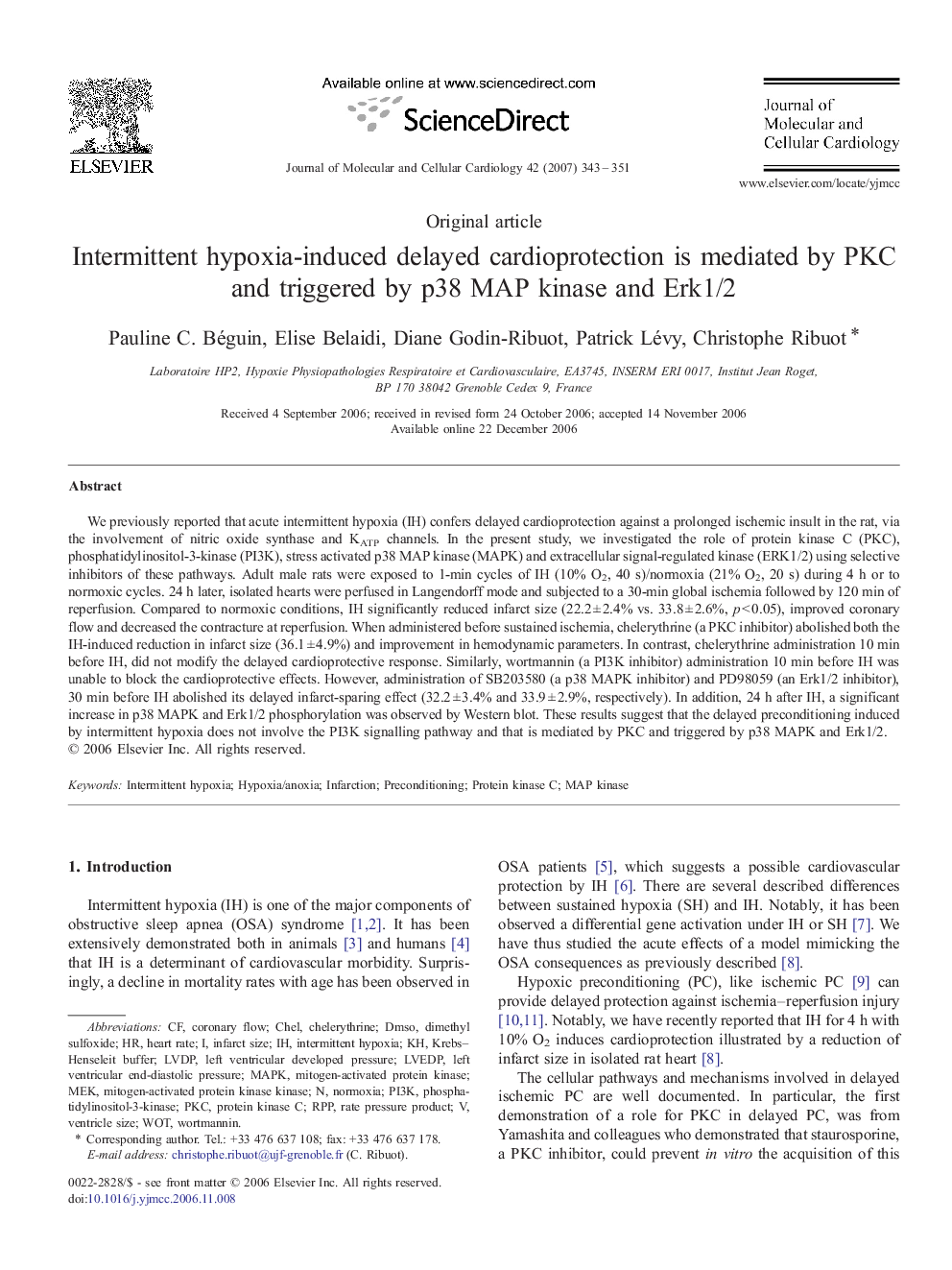| Article ID | Journal | Published Year | Pages | File Type |
|---|---|---|---|---|
| 2191901 | Journal of Molecular and Cellular Cardiology | 2007 | 9 Pages |
We previously reported that acute intermittent hypoxia (IH) confers delayed cardioprotection against a prolonged ischemic insult in the rat, via the involvement of nitric oxide synthase and KATP channels. In the present study, we investigated the role of protein kinase C (PKC), phosphatidylinositol-3-kinase (PI3K), stress activated p38 MAP kinase (MAPK) and extracellular signal-regulated kinase (ERK1/2) using selective inhibitors of these pathways. Adult male rats were exposed to 1-min cycles of IH (10% O2, 40 s)/normoxia (21% O2, 20 s) during 4 h or to normoxic cycles. 24 h later, isolated hearts were perfused in Langendorff mode and subjected to a 30-min global ischemia followed by 120 min of reperfusion. Compared to normoxic conditions, IH significantly reduced infarct size (22.2 ± 2.4% vs. 33.8 ± 2.6%, p < 0.05), improved coronary flow and decreased the contracture at reperfusion. When administered before sustained ischemia, chelerythrine (a PKC inhibitor) abolished both the IH-induced reduction in infarct size (36.1 ± 4.9%) and improvement in hemodynamic parameters. In contrast, chelerythrine administration 10 min before IH, did not modify the delayed cardioprotective response. Similarly, wortmannin (a PI3K inhibitor) administration 10 min before IH was unable to block the cardioprotective effects. However, administration of SB203580 (a p38 MAPK inhibitor) and PD98059 (an Erk1/2 inhibitor), 30 min before IH abolished its delayed infarct-sparing effect (32.2 ± 3.4% and 33.9 ± 2.9%, respectively). In addition, 24 h after IH, a significant increase in p38 MAPK and Erk1/2 phosphorylation was observed by Western blot. These results suggest that the delayed preconditioning induced by intermittent hypoxia does not involve the PI3K signalling pathway and that is mediated by PKC and triggered by p38 MAPK and Erk1/2.
